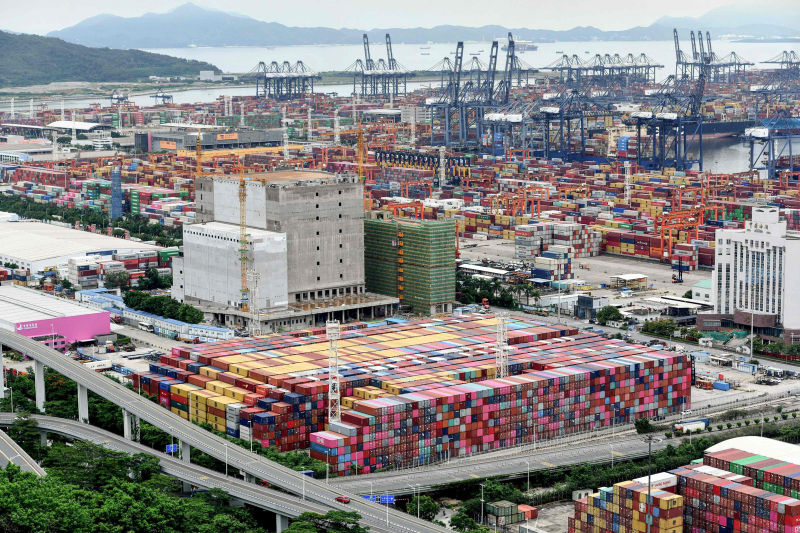China’s exports and imports slid in October, as rising inflation and interest rates eroded global demand and Covid curbs disrupted domestic output and consumption.
The weak trade figures will test policymakers as exports had been one of the economy’s few bright spots.
Outbound shipments in October fell 0.3% from a year earlier, down from a 5.7% gain in September, official data showed on Monday.
The figures were the worst since May 2020 and well off analysts’ expectations for a 4.3% increase.
The data suggests demand remains frail overall, heaping more pressure on the country’s manufacturing sector and threatening any meaningful economic revival in the face of persistent Covid restrictions, protracted property weakness and global recession risks.
Chinese exporters weren’t able to capitalise on a weakening of the yuan and the key year-end shopping season, underlining the broadening strains for consumers and businesses worldwide.
“The weak export growth likely reflects both poor external demand as well as the supply disruptions due to Covid outbreaks,” said Zhiwei Zhang, chief economist at Pinpoint Asset Management, noting Covid impacts at the Foxconn factory, which makes iPhones for Apple in Zhengzhou, as one example.
Apple said it expects lower-than-anticipated shipments of high-end iPhone 14 models following the key production cut at the virus-blighted plant in China.
“Looking forward, we think exports will fall further over the coming quarters. The shift in global consumption patterns that pushed up demand for consumer goods during the pandemic will probably continue to unwind,” Zichun Huang, an economist at Capital Economics, said.
“We think that aggressive financial tightening and the drag on real incomes from high inflation will push the global economy into a recession next year.”
Barclays said in a note on Monday: “We expect exports to fall 2-5% in 2023 on slowing external demand and China’s shrinking share of global exports.”
ALSO SEE: India Calls on Rich Nations to Deliver $100bn Climate Fund
Further Imports Weakness
Almost three years into the pandemic, China has stuck to a strict Covid containment policy that has exacted a heavy economic toll and caused widespread frustration and fatigue.
Feeble October factory and trade figures suggested the world’s second-biggest economy is struggling to get out of the mire in the last quarter of 2022, after it reported a faster-than-anticipated rebound in the third quarter.
Chinese policymakers pledged last week to prioritise economic growth and press on with reforms, easing fears that ideology could take precedence as President Xi Jinping began a new leadership term and disruptive lockdowns continued with no clear exit strategy in sight.
Tepid domestic demand, weighed down by fresh Covid curbs and lockdowns in October as well as the cooling property market, hurt imports too.
Inbound shipments declined 0.7% from a 0.3% gain in September, below a forecast 0.1% increase – the weakest outcome since August 2020.
China’s imports of soybeans fell and coal imports slipped, as the strict pandemic measures and a property slump disrupted domestic output.
The overall trade figures resulted in a slightly wider trade surplus of $85.15 billion, compared with $84.74 billion in September, missing a forecast of $95.95 billion.
- Reuters with additional editing by Jim Pollard
ALSO SEE:
China Covid Cases Surge Dents Investor Reopening Hopes
























